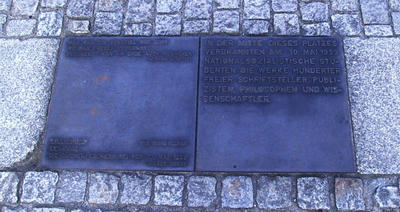Banned Books Week (BBW) is an annual event celebrating the freedom to read and the importance of the First Amendment. Held during the last week of September, Banned Books Week highlights the benefits of free and open access to information while drawing attention to the harms of censorship by spotlighting actual or attempted bannings of books across the United States.The focus of the US Banned Books Week is probably more about local libraries making decisions to remove certain books that are not actually illegal.
Intellectual freedom—the freedom to access information and express ideas, even if the information and ideas might be considered unorthodox or unpopular—provides the foundation for Banned Books Week. BBW stresses the importance of ensuring the availability of unorthodox or unpopular viewpoints for all who wish to read and access them.
The books featured during Banned Books Week have been targets of attempted bannings. Fortunately, while some books were banned or restricted, in a majority of cases the books were not banned, all thanks to the efforts of librarians, teachers, booksellers, and members of the community to retain the books in the library collections. Imagine how many more books might be challenged—and possibly banned or restricted—if librarians, teachers, and booksellers across the country did not use Banned Books Week each year to teach the importance of our First Amendment rights and the power of literature, and to draw attention to the danger that exists when restraints are imposed on the availability of information in a free society.
No book in Australia had been banned since the 1970s, except for one about euthanasia, which was refused classification in 2007. Other books would be refused classification based on related laws on criminal activities, making them illegal.
It is timely then to remember what happened on 10 May 1933.

Nazi youth groups burned around 20,000 books from the Institut für Sexualwissenschaft and Humboldt University; including works by Thomas Mann, Erich Maria Remarque, Heinrich Heine, Karl Marx and H.G. Wells. Student groups throughout Germany also carried out their own book burnings on that day and in the following weeks.

There is now a memorial/plaque at the site of the book burning (in Bebelplatz, Berlin).

where books are burned, in the end people will burn - Heinrich Heine, 1820
I visited this site some years ago, which made me quite sad.
No comments:
Post a Comment